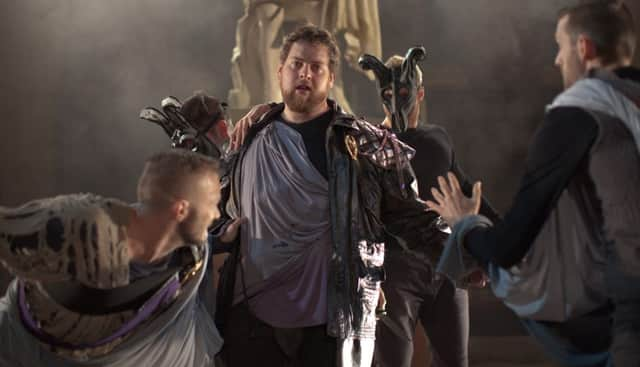Julius Caesar (review). Anne Cox takes a pew for Shakespeare’s political play.


But then St Paul’s, at the heart of Covent Garden, isn’t your average church. It was built in the 17th century, created by stage designer Inigo Jones, and has, ever since, combined religious service with devotion to the arts. It is, without doubt, one of London’s quirkier theatre spaces.
This week it opened its doors to Iris Theatre’s promenade production of Shakespeare’s political play - Julius Caesar - and it’s an experience I’d urge you all to try.
Advertisement
Hide AdAdvertisement
Hide AdNot only do the actors move from set to set, but so, too, does the audience (which, logistically, could be horrendous, but was achieved without anyone getting lost). I bet lots of you have passed by the outside of St Paul’s as they walked through the Piazza but was unaware of its story.


Its rector, the very amiable Rev Simon Grigg, is a former punk singer, actor and music promoter and he likes nothing better than to have the church used for theatre - even one as violent and bloody as this story of a tyrant’s downfall.
We start in a courtyard at the side of the building where we meet Caesar (a bear of a man played with some menace by Matthew Mellalieu); his golden boy, Mark Antony; and those traitorous plotters, Cassius, Casca and Brutus.
Minutes later the audience trots off to the rear where most of the story is told in different sections of the secluded, rose-scented, gardens.
Advertisement
Hide AdAdvertisement
Hide AdBut the full glory of the surroundings is saved for the great senate scene where Caesar is horribly dispatched. This is pure theatre, courtesy of director Daniel Winder and, no-doubt, with input from Grigg.
The great entrance doors are flung open and the theatre-goers enter the church accompanied by the majestic splendour of one of Handel’s coronation anthems. The burnished chandeliers shine brightly and all eyes fall on a magnificent statue of a godlike Caesar taking pride of place at the alter (this is, after all, where we, now Romans, have come to praise him).
The despot’s final scenes are performed surrounded by the ghosts of some of Britain’s greatest actors and dramatists whose memorial plaques decorate the walls. Could there be a finer partnership between the theatricality of church and the religious fervour of theatre?
Performance-wise the protagonists are a rough bunch and well deserved to be called Dogs of War.
Advertisement
Hide AdAdvertisement
Hide AdCaesar’s foot soldiers are stripped back to the bone, dressed in modern clothes and accessorised with riot shields and hunting daggers.
Nick Howard-Brown’s mutinous Cassius convinces as a baying dog snapping at the heels of power. Driven and duplicitous he skilfully fires up the mob, including Casca (Daniel Hanna looking suitably subservient).
Brutus is another matter. David Hywel Baynes succeeds in presenting a tortured, honest and honourable man who kills in a bid to save his country from ruin rather than for personal ambition.
Mark Antony, Caesar’s right arm and the pride of his militia, lets loose a couple of powerful speeches which are delivered with aggressive passion by Matt Wilman. He also flexes his muscles for some full-on fight scenes, including violent hand-to-hand combat against Casca, well-choreographed by fight director Roger Bartlett.
Advertisement
Hide AdAdvertisement
Hide AdSome of the great speeches failed to stand out but, in a play packed with them, that’s no bad thing.
The whole production is earthy and reeks of testosterone but it’s handsomely delivered by a young and energetic cast amid a quite remarkable setting. Give it a go.
Running until July 26 (and due to be followed by Alice In Wonderland at the same venue). An original and inventive night’s theatre will cost you just £15.50 a ticket. For information/tickets go to www.iristheatre.com or pay on the door.